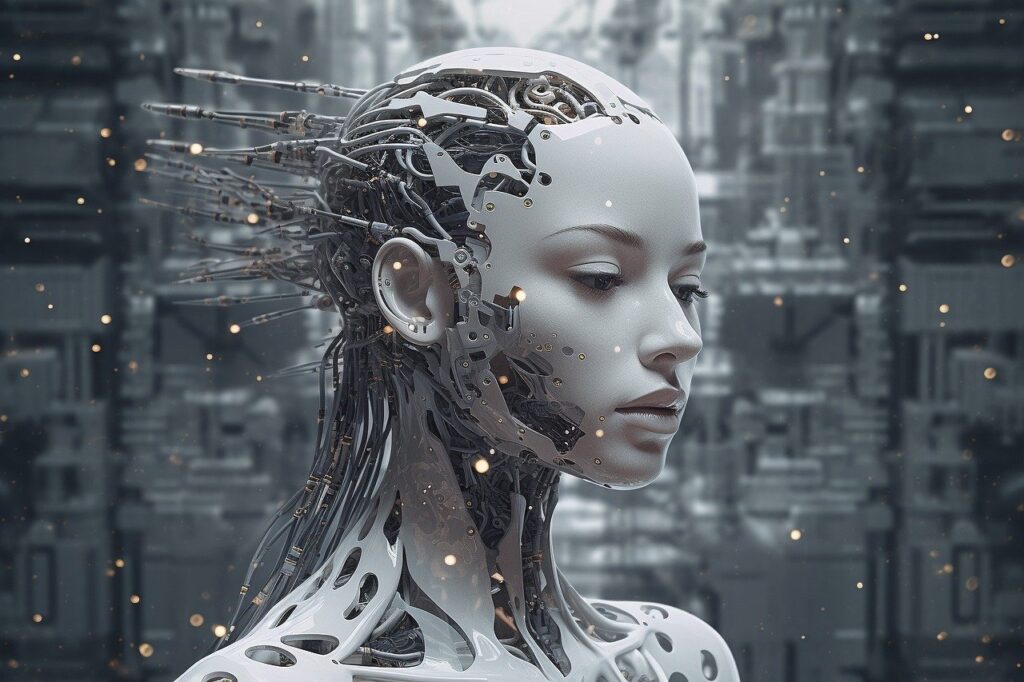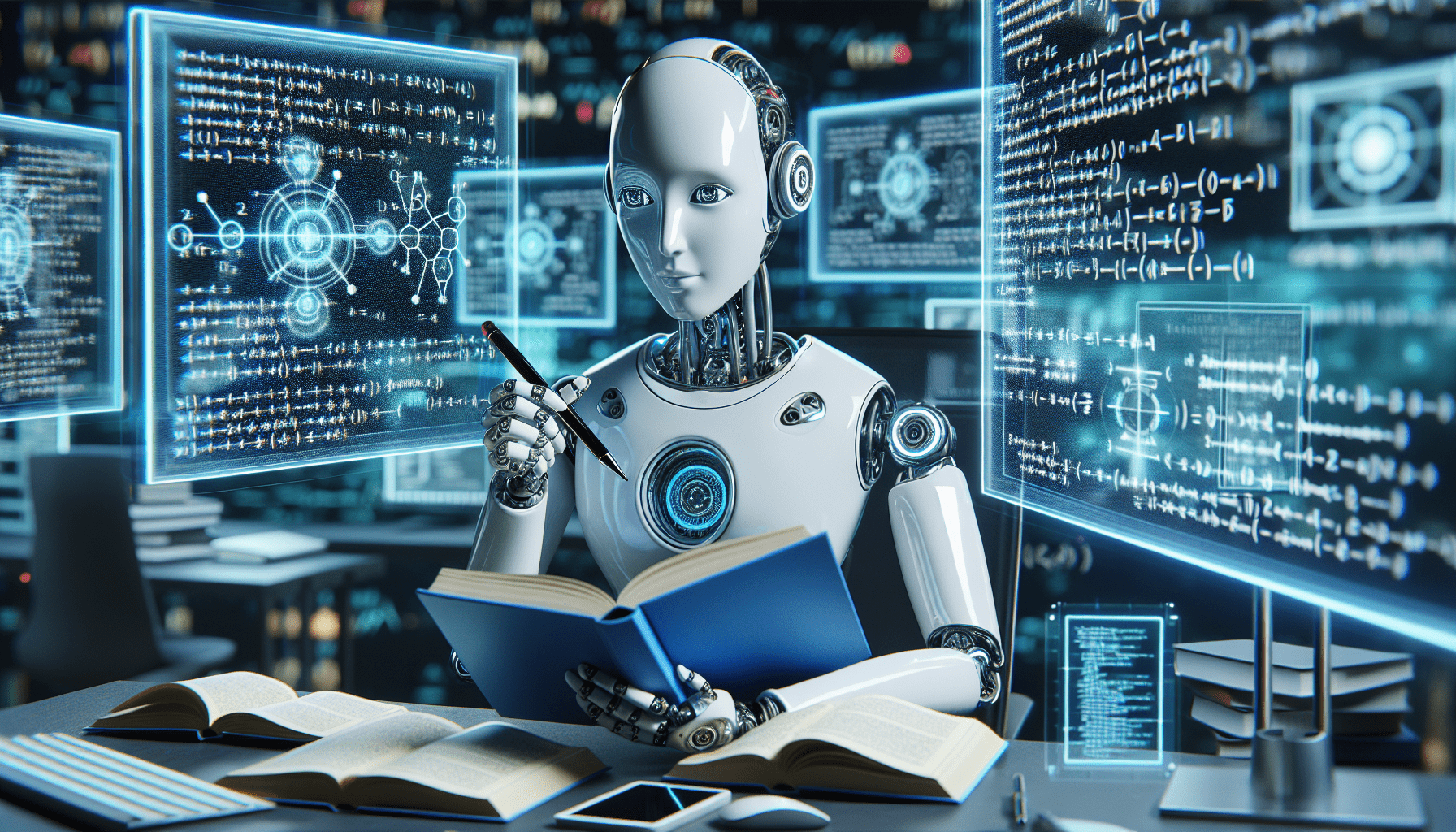Can AI Write Textbooks And Study Materials?
Have you ever wondered if artificial intelligence (AI) could eventually take over the task of creating textbooks and study materials? In this article, we will explore the capabilities of AI in the education industry and whether it is possible for AI to write textbooks and study materials.
What is Artificial Intelligence (AI)?
Artificial Intelligence, often referred to as AI, is a branch of computer science that focuses on creating machines or systems that can perform tasks that typically require human intelligence. These tasks include learning, problem-solving, decision-making, and speech recognition, among others.
AI can be classified into two categories: Narrow AI and General AI. Narrow AI, also known as Weak AI, is designed to perform a specific task, such as playing chess or recommending movies. General AI, on the other hand, is a more advanced form of AI that can handle any intellectual task that a human can.
The Role of AI in Education
AI has already begun to revolutionize the education industry by providing personalized learning experiences, automating administrative tasks, and improving student performance. With the advancements in machine learning and natural language processing, AI is now capable of creating content that mimics human writing.
The integration of AI in education has the potential to enhance the learning experience for students, making it more interactive, engaging, and tailored to individual needs. With the ability to analyze vast amounts of data and adapt to students’ learning styles, AI can provide valuable insights to both educators and students.

Can AI Write Textbooks?
One of the main questions surrounding AI in education is whether AI can write textbooks. While AI is currently capable of generating content, particularly in the form of essays, articles, and reports, the task of writing a comprehensive textbook is more complex.
Textbooks require a deep understanding of the subject matter, the ability to organize information effectively, and the capacity to explain complex concepts in a clear and concise manner. While AI can analyze vast amounts of data and extract information, it may struggle with creating cohesive narratives and engaging explanations that are essential in textbooks.
The Limitations of AI in Writing Textbooks
Although AI can generate text, it lacks the creativity, critical thinking, and real-world experience that are typically needed to write textbooks. Textbooks often require authors to provide insights, examples, and explanations that go beyond factual information, which may be challenging for AI to replicate.
Furthermore, textbooks are often updated to reflect new knowledge, research, and developments in a particular field. AI may struggle to keep up with these changes and provide accurate and up-to-date information in textbooks.

AI-Generated Study Materials
While AI may face challenges in writing textbooks, it can still be a valuable tool in creating study materials. AI-powered platforms can generate practice questions, quizzes, flashcards, and summaries based on the content students need to learn.
These study materials can help students reinforce their understanding of key concepts, test their knowledge, and prepare for exams. By providing personalized study resources tailored to individual learning needs, AI can enhance the learning process and improve student outcomes.
Benefits of AI-Generated Study Materials
The use of AI-generated study materials offers several benefits for both students and educators. These benefits include:
- Personalized Learning: AI can create customized study materials based on students’ strengths, weaknesses, and learning styles, allowing for a personalized learning experience.
- Immediate Feedback: AI-powered platforms can provide instant feedback on practice questions and quizzes, helping students identify areas of improvement and track their progress.
- Accessibility: AI-generated study materials can be accessed online at any time, allowing students to study at their convenience and pace.
- Efficiency: AI can automate the process of creating study materials, saving educators time and resources that can be allocated to other tasks.

Ethics and Concerns
As with any technology, the integration of AI in education raises ethical concerns and challenges. Some of the ethical considerations related to AI-generated textbooks and study materials include:
- Bias and Fairness: AI algorithms may unintentionally perpetuate bias and discrimination present in the data used to train these systems, leading to unfair outcomes for certain groups of students.
- Privacy and Data Security: AI platforms may collect and analyze sensitive student data, raising concerns about data privacy and security.
- Dependence on Technology: Students may become overly reliant on AI-generated study materials, potentially hindering critical thinking and problem-solving skills.
Ensuring Quality and Accuracy
To ensure the quality and accuracy of AI-generated textbooks and study materials, it is essential to establish guidelines, standards, and protocols for the development and use of these resources. Educators and content creators can work together to oversee the creation process, review the content, and provide feedback to improve the materials.
Additionally, utilizing AI as a supplement rather than a replacement for traditional teaching methods can help mitigate the risks associated with AI-generated content. By combining the capabilities of AI with human expertise and oversight, educators can leverage the benefits of AI while ensuring the quality and integrity of educational materials.

The Future of AI in Education
Despite the challenges and limitations of AI in writing textbooks and study materials, the future of AI in education looks promising. As technology continues to evolve and AI algorithms become more sophisticated, we can expect to see advancements in AI-powered content creation tools that enhance the learning experience and support student achievement.
By harnessing the potential of AI to create personalized, interactive, and engaging educational materials, educators can facilitate effective learning environments that cater to the diverse needs of students. As AI continues to revolutionize the education industry, the possibilities for transforming the way we teach and learn are endless.
In conclusion, while AI may not be able to fully write textbooks at this time, its capabilities in generating study materials and enhancing the learning experience are undeniable. As technology continues to progress, AI will play an increasingly pivotal role in shaping the future of education and enriching the academic journey for students worldwide.


Comments are closed